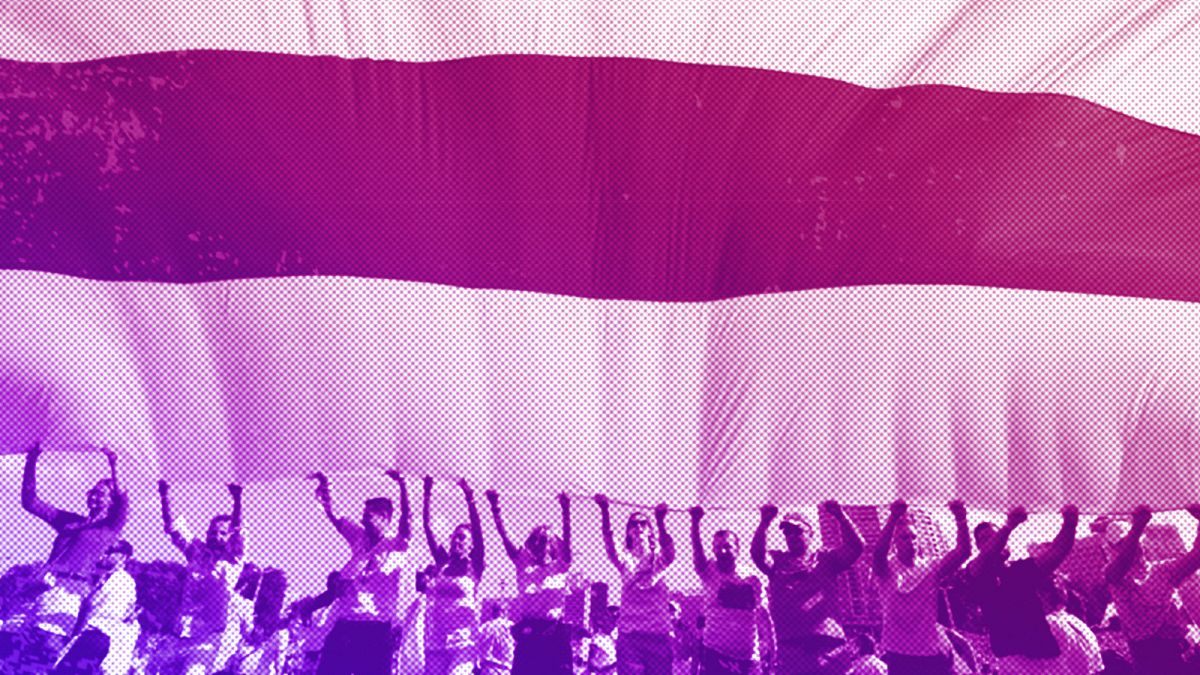For Belarus, the path towards Europe runs through Strasbourg
The opinions expressed in this article are those of the author and do not represent in any way the editorial position of Euronews. The fight against autocracy is Europe’s main challenge today. We must defend the values that define us, Sviatlana Tsikhanouskaya and Marija Pejčinović Burić write. Europe’s journey over three-quarters of a century reflects […]


The opinions expressed in this article are those of the author and do not represent in any way the editorial position of Euronews.
The fight against autocracy is Europe’s main challenge today. We must defend the values that define us, Sviatlana Tsikhanouskaya and Marija Pejčinović Burić write.
Europe’s journey over three-quarters of a century reflects a vision articulated by one of its founding fathers, Robert Schuman: “Europe will not be made all at once, or according to a single plan. It will be built through concrete achievements.”
In keeping with Schuman’s foresight, Europe has evolved step by step, with each achievement profoundly improving the lives of its citizens.
This evolving Europe transcends geographical definitions, embodying a community committed to human rights, democracy, and the rule of law.
These values, championed by the Council of Europe, the leading organisation standing for human rights, rule of law and democracy on our continent, are precisely what many Belarusians are courageously fighting for today.
For the people of Belarus, the road to Europe runs through Strasbourg. The Council of Europe is key for the democratic future of their country.
Although Belarus was never a member state, that did not prevent the Council of Europe from working to bring the country closer to European values.
Official contacts and cooperation, however, came to an abrupt end following the launch of Russia’s full-scale aggression against Ukraine.
In 2022, the Council of Europe established instead a Contact Group with Belarusian democratic forces and civil society, a pioneering initiative that serves now as a model for other organisations, designed after ceasing any contact with the Minsk regime.
Never before had it engaged in this way with a nation’s democratic forces in the absence of ties with its formal government.
That bold step underscores the extraordinary nature of our times and the critical role required in supporting Belarus’ democratic aspirations.
Tearing down the barriers to democracy
For the brave people of Belarus, facing the challenges of repression and the struggle for a democratic society, the significance of the Council of Europe’s role and purpose cannot be overstated.
The organisation’s experience in supporting and monitoring European countries’ democratic transition provides a framework for Belarus to follow.
Moreover, this platform for dialogue offers Belarusians a voice in a larger European conversation about democracy and human rights. This is crucial for people who have long been isolated due to the actions of the current regime.
We want to see the disappearance of barriers to democracy erected by the Lukashenka regime.
This includes supporting civil society and independent media, including journalists in exile, aiding political prisoners and their families, and offering expertise in reforming legal and political systems.
The Council of Europe’s Safety of Journalists Platform, through its partner organisations, continues to monitor the situation in Belarus. Its annual report released on Tuesday confirms that Belarus holds the unwelcome record of the number of journalists in detention (38 by the end of 2023).
Looking ahead, we must work towards reforms of fundamental importance, including abolishing the death penalty, which will be crucial for Belarus in aligning with European standards and a symbolic move towards a more humane, just society.
The Contact Group has recently agreed on an action plan comprised of 15 targeted activities. These are not abstract ambitions but immediate steps towards tangible outcomes. Together, we are sowing the seeds for meaningful change.
Europe wasn’t built in a day
Importantly, in all this, like-minded Belarusians are treated as partners ready to contribute to a shared future.
They bring to the table not just a willingness to engage in democratic reform but also expertise in areas critical to Europe’s future, such as the regulation of artificial intelligence and ensuring environmental sustainability.
The best future for Belarus is a truly European one, marked by a commitment to the values that define our modern continent, centred on the European Convention on Human Rights, which remains our golden standard.
Walking the path to that democratic future, integrated into the European community and, ultimately, its institutions, requires courage, resilience, and international solidarity. But the destination is the right one for the Belarusian people.
They deserve the stability, prosperity and freedom that come with it.
Step by step, we will enable this together. Like proverbial Rome, Europe was not built in a day.
But every day, we can make progress, by upholding the values that define us as a community of human rights, rule of law and democracy.
Sviatlana Tsikhanouskaya is the leader of the Belarusian opposition in exile, and Marija Pejčinović Burić is the Secretary General of the Council of Europe.
At Euronews, we believe all views matter. Contact us at view@euronews.com to send pitches or submissions and be part of the conversation.














